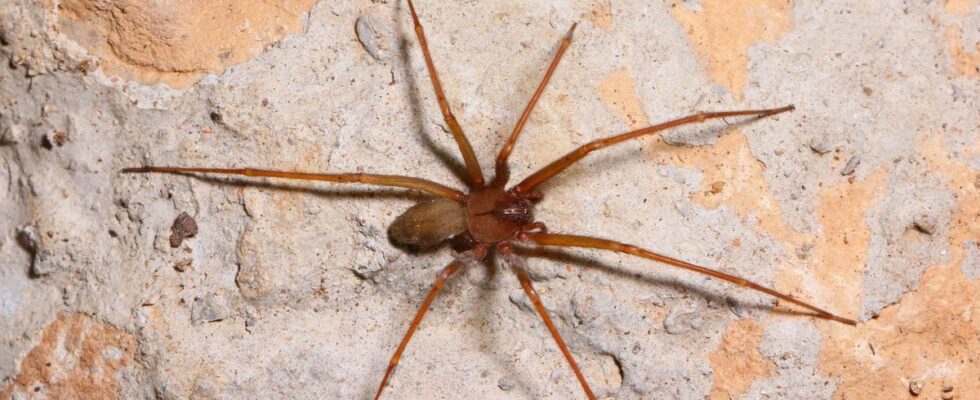Published on
Updated
Reading 2 min.
in collaboration with
Dr Gérald Kierzek (Medical Director of Doctissimo)
In early July, an Italian soldier posted to Sicily was bitten by a seemingly harmless spider. However, he died 5 days later in hospital. How is this possible? Explanations from Dr. Gérald Kierzek, emergency physician and medical director of Doctissimo.
Last Friday, July 12, an Italian gendarme died in Palermo, Sicily, 5 days after being bitten by a violin spider in the surrounding countryside. However, the specimen is not known to be fatal.
An ankle that has become hot and painful
The 52-year-old man, a gendarme assigned to the judicial escort service, was bitten on the ankle during a day spent in the Sicilian countryside on July 7. But it was not until three days later that the victim became really concerned about his condition. Noting that his ankle was red and painful, he went to the Cervello hospital in Palermo, where he received treatment for 48 hours. Unfortunately, it was not enough. On July 12, just 5 days after the bite, he succumbed to his infection.
The violinist spider is not considered deadly.
The fiddler spider (which owes its name to the spot that adorns the top of its body and which resembles the musical instrument) is not considered deadly. It is also classified as “least concern” in the national inventory of natural heritage in France, specifies The Parisian . There is therefore no need to be overly concerned about it, in Italy as in France. In theory, the bite of this arthropod, which lives at night and in dry and hot environments, cannot kill a human.
But its venom can do damage
But our medical director and emergency physician, Dr. Gérald Kierzek, reminds us that in the event of a bite by this spider, you must act quickly: “It is not considered fatal, but it injects venom that necrotizes tissues, which is called cytolytic, because it is capable of killing cells.” This results in necrosis, i.e. death of the skin, blood vessels, etc. “We must react early enough to remove the necrotic part and prevent it from spreading”continues our expert.
Bite, sting, the right reaction when it happens to you
The dramatic incident, however, provides a useful reminder: in the event of a sting or bite from a spider or insect, it is quite normal to see a local reaction. But any abnormal development or wound that spreads should lead you to a doctor.
“If you notice that the area becomes black, blistered, infected, it is essential to consult quickly, because it is the speed of treatment that counts. Especially if surgery is required or the person needs to be put on antibiotics. It is the speed that determines the prognosis.”
The emergency doctor’s tip to know
Finally, our expert shares a little tip that can alert you or reassure you in the event of a spider bite or other sting: “What we do in the emergency room is draw the outline of the red area with a felt-tip pen. This allows us to see objectively whether it has spread or not.”. A tip to sting, against bites!
